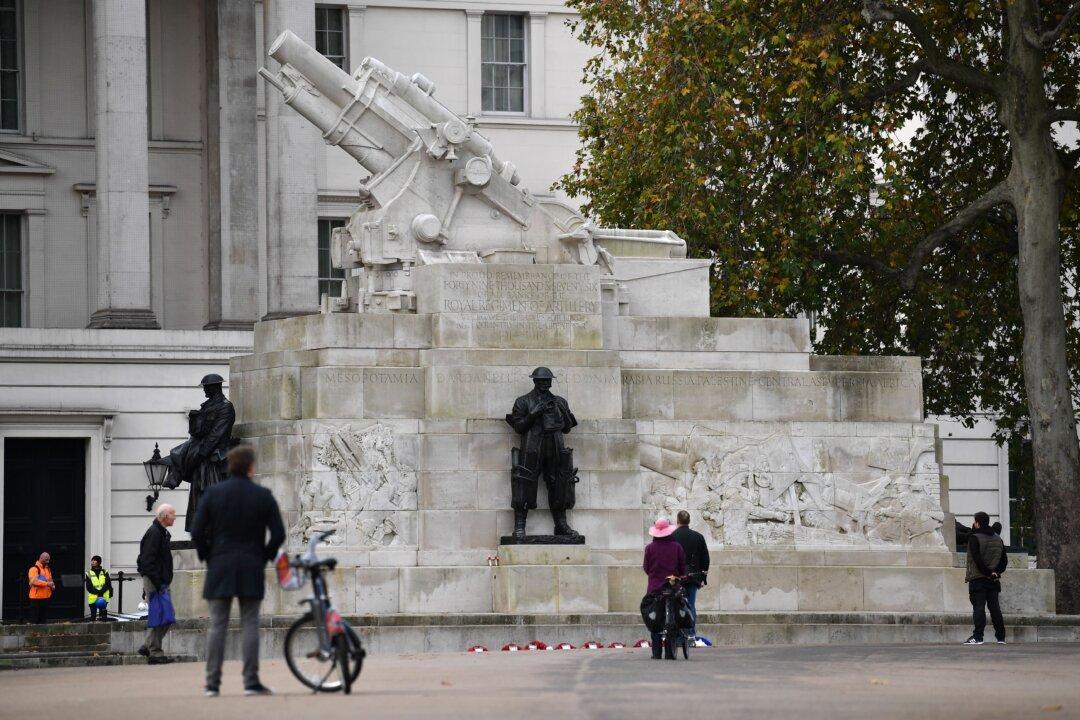Pro-Palestinian protesters, who climbed a war memorial in central London on Wednesday did not break the law, the Metropolitan Police has reported.
A dispersal order was in place across parts of the City of Westminster on Wednesday evening, as groups of protesters were demonstrating outside the Houses of Parliament and around Hyde Park Corner.





